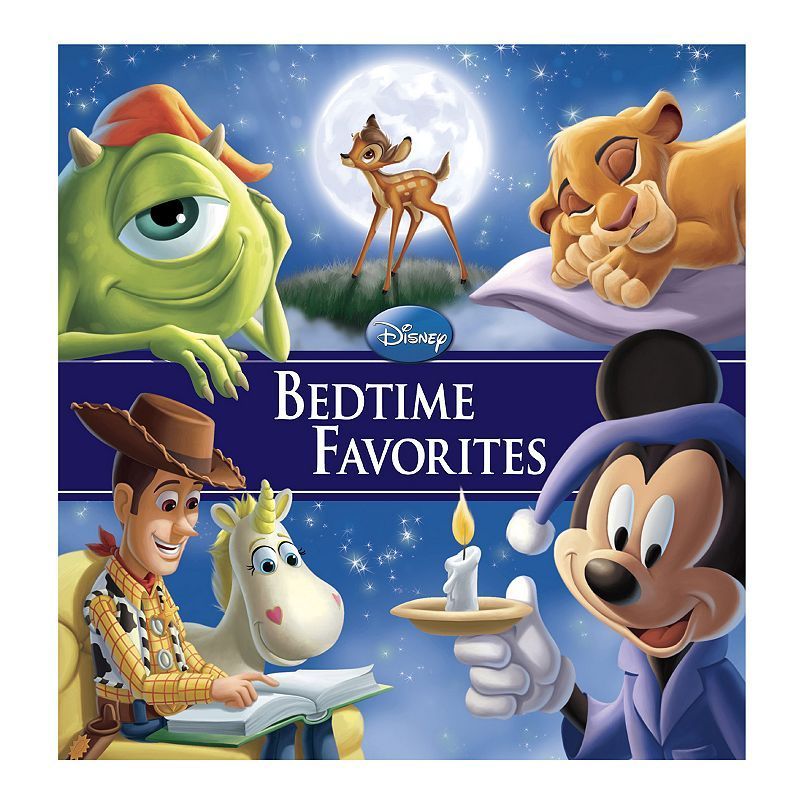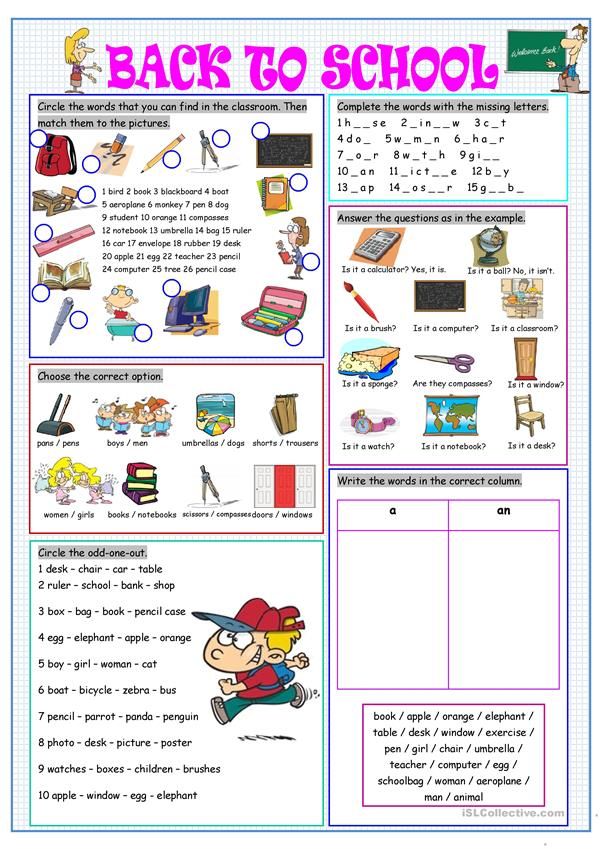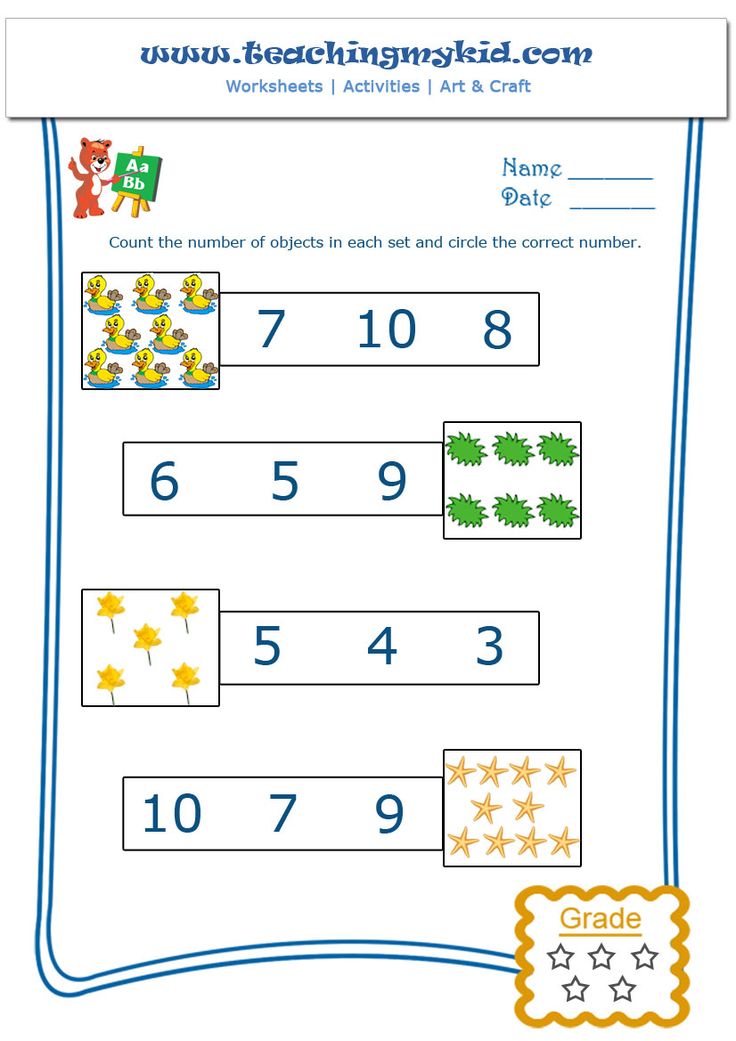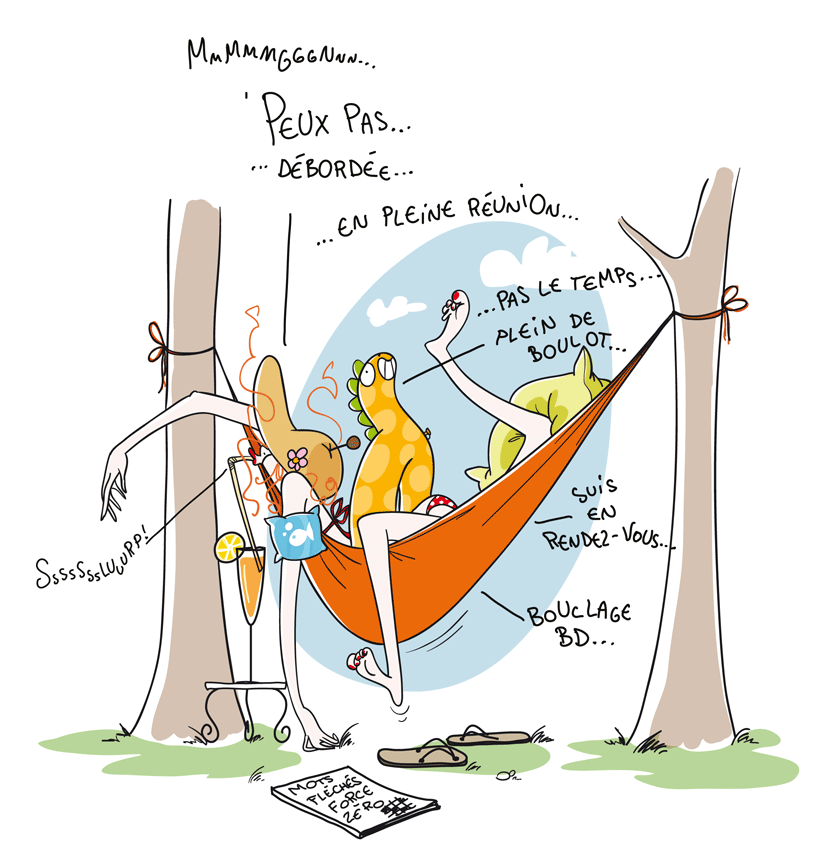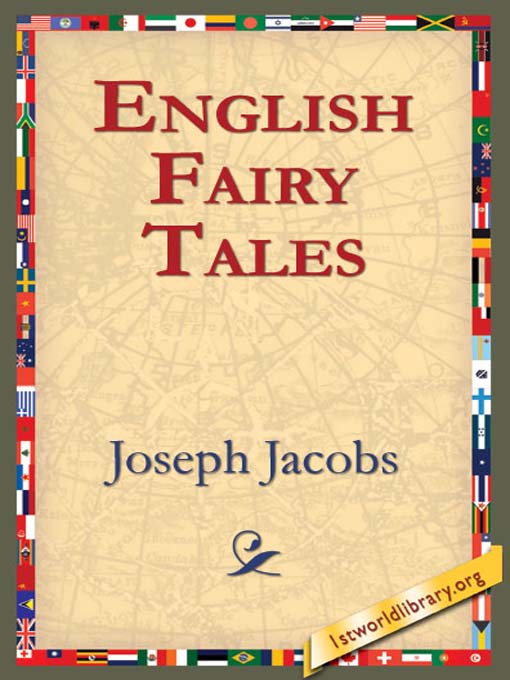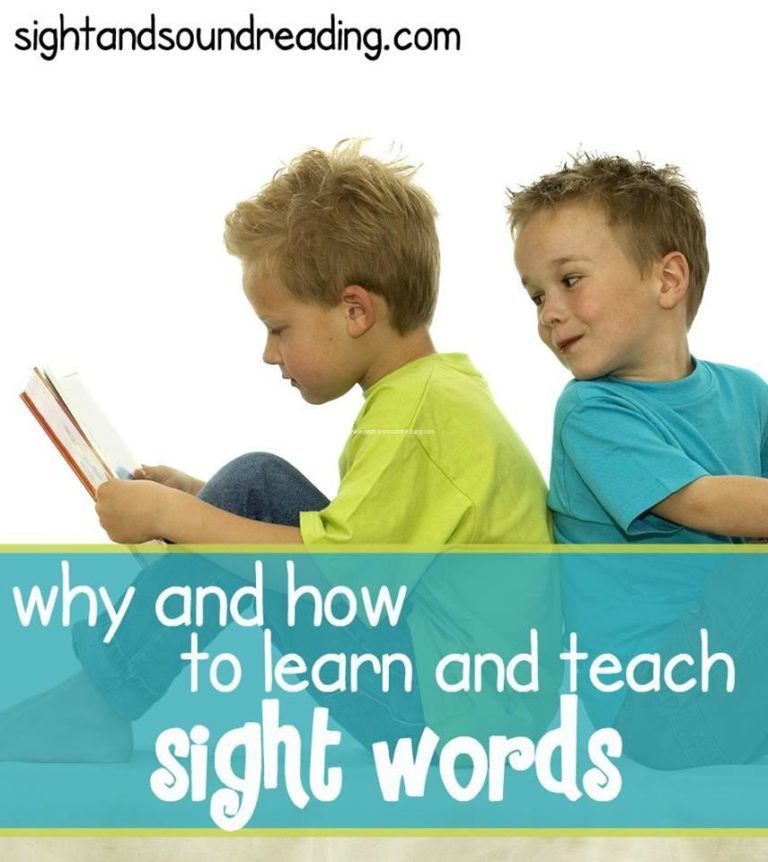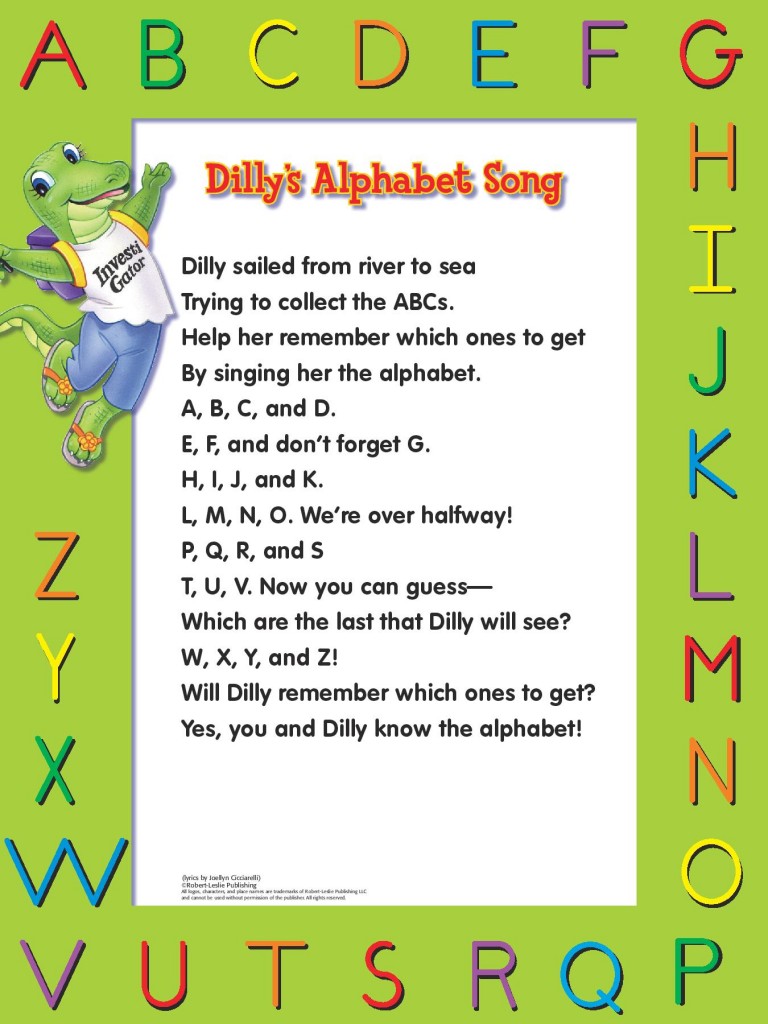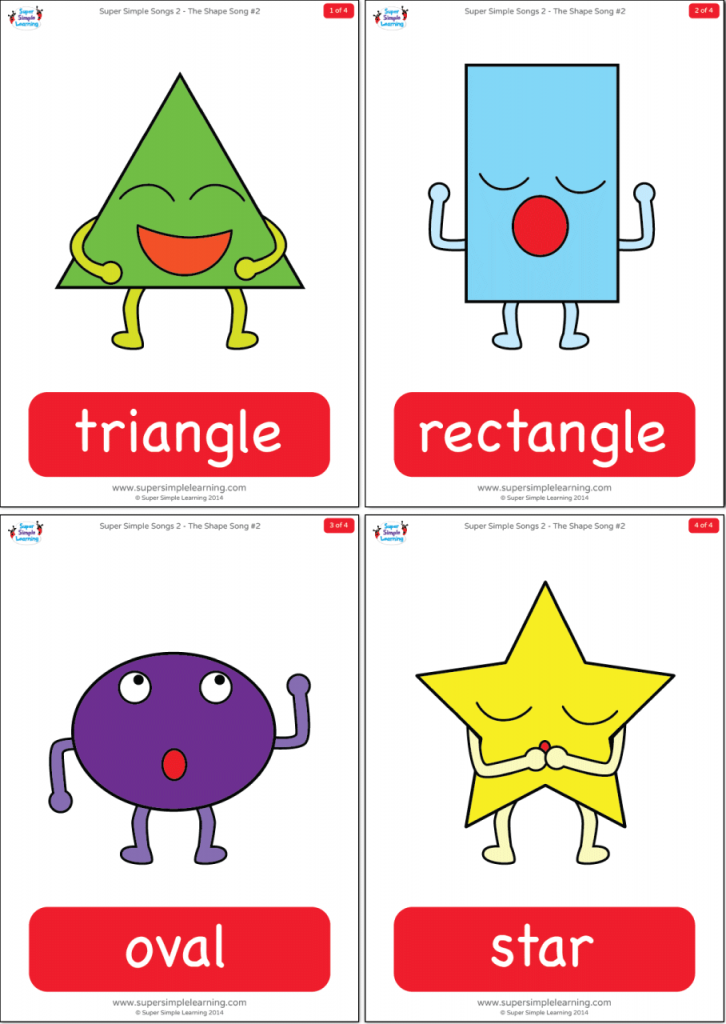Learn spell words
How to Study Spelling Words: A Spelling Strategy for Students
By: Bruce Murray
When students study spelling words, they usually memorize a sequence of letters that they promptly forget once the test is over. Learn about a method for teaching kids spelling words that focuses them on the sequence of sounds in words first. Also learn tips for creating a successful spelling program.
Poor spellers often try to memorize a spelling as if it were an arbitrary letter string. Arbitrary strings are terribly hard to remember think how long it takes to learn a phone number and then imagine trying to learn 88,500 phone numbers, the estimated number of words in printed school English.
The following strategy helps the student focus on the pronunciation of a word before seeing its spelling. This helps the student understand that a spelling is a meaningful map of the pronunciation. When spellings are understood as pronunciation maps, they are much easier to remember.
First, try to get students to feel what their mouths are doing as they say the word. Here's an example:
- Say the word night
- Say each syllable if there are more than one.
- Stretch the word /nnn-iii-t-t-t/
- Work by syllables if necessary.
- If a sound can't be stretched, stutter it.
- Split up the sounds.
- Work by syllables if necessary.
- First sound? /n/
- Next sound? /i/
- Last sound? /t/
- Count the sounds. 3
- Draw blanks. ___ ___ ___
- The blanks stand for the sounds.
- Put slashes between syllables if necessary.
Next, help the student learn the spelling.
- Record the spelling sound by sound.
- On the first blank, write the letters n __ __
- On the next blank, write the next letters n igh __
- On the last blank, write the last letters n igh t
- If there are silent letters, caret them in.
- Study the spelling.
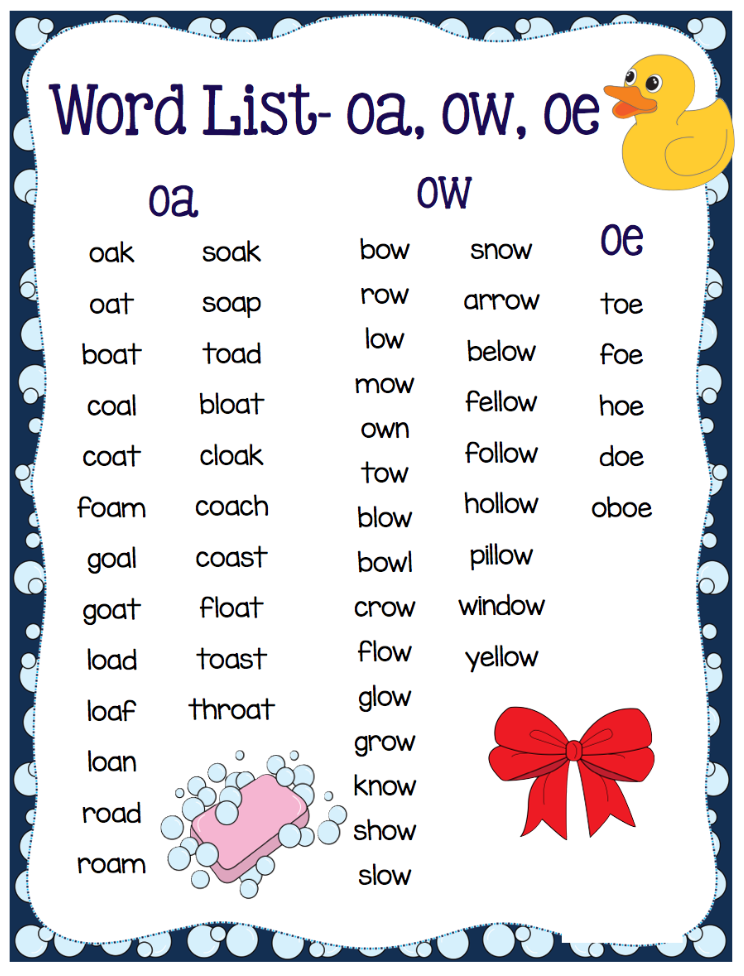
- Ask, what does [the pattern] say? In our example, what does igh say? Only ask about tricky parts.
- Write the word night
- Give the meaning.
- What does ______ mean? When it's dark out.
Here's a shortcut version of the above strategy for studying spelling words:
- Say
- Stretch
- Split up
- Count
- Draw blanks
- Record
- Study
- Write
- Give meaning
Excerpted and adapted from: Murray, B. (1999). How to Study Spelling Words. The Reading Genie, Auburn University.
Related Topics
Spelling and Word Study
New and Popular
Cracking the Code: How and Why Big Horn Elementary School Went All-In with Structured Literacy
Print-to-Speech and Speech-to-Print: Mapping Early Literacy
100 Children’s Authors and Illustrators Everyone Should Know
A New Model for Teaching High-Frequency Words
7 Great Ways to Encourage Your Child's Writing
Screening, Diagnosing, and Progress Monitoring for Fluency: The Details
Phonemic Activities for the Preschool or Elementary Classroom
Our Literacy Blogs
More on Hanford: Phonics Reform and Literacy Levels
Kids and educational media
Meet Ali Kamanda and Jorge Redmond, authors of Black Boy, Black Boy: Celebrating the Power of You
Get Widget |
Subscribe
Learning to spell for adults and mature learners
Not all adults have perfect spelling skills. In fact, many have developed bad spelling habits over the years. This is even more so the case today given the nature of communication on social media networks and mobile texting.
In fact, many have developed bad spelling habits over the years. This is even more so the case today given the nature of communication on social media networks and mobile texting.
Abbreviations are common in order to save space in posts and message chains and people ignore English capitalization and punctuation rules. It’s also the case that individuals who left school early may simply have missed out on learning how to spell in the first place.
And while spelling is only one aspect of productive language knowledge, it tends to be a rather obvious one. You may not know what a word means, but when you misspell something, everyone notices.
Spelling is not a reflection of intelligence. Nonetheless, it is still necessary to know how to spell in order to be successful in academic and work endeavours. Having poor spelling skills in English can cause an adult to be judged negatively by others.
They may lose out on job or career advancement opportunities and often will experience feelings of embarrassment and low self-esteem.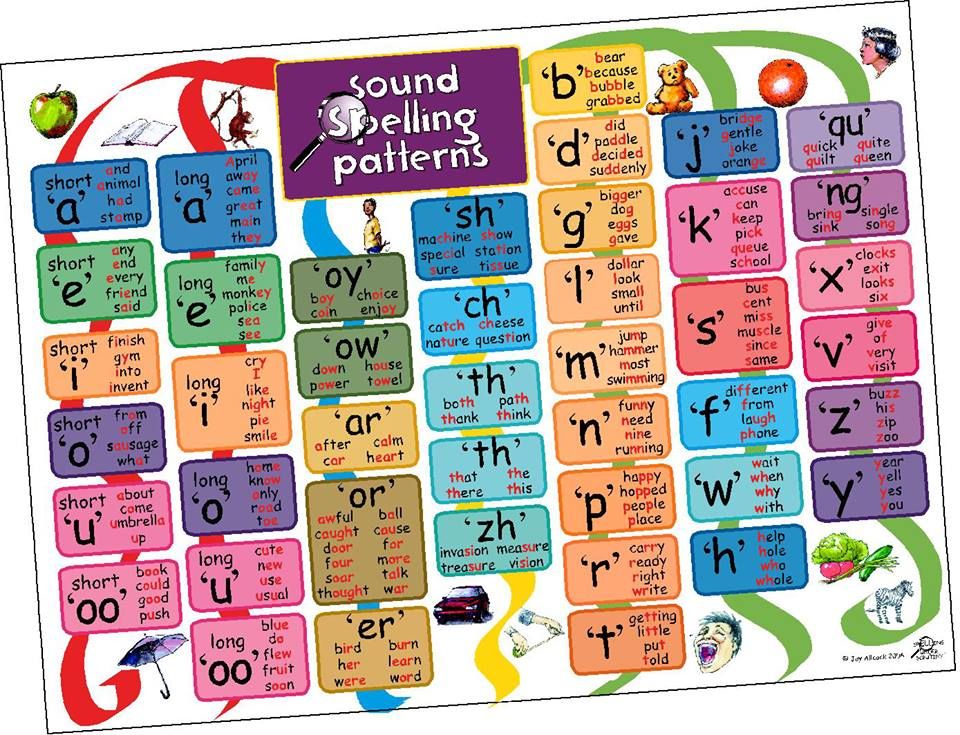 Worse still, poor spelling skills can cause individuals not to reach their full potential at school.
Worse still, poor spelling skills can cause individuals not to reach their full potential at school.
This is because when a young adult finds certain words hard to spell, they may rely on more common and less specific vocabulary in writing, or avoid writing altogether. Their written work can appear over-simplified and may not reflect the true extent of their vocabulary.
While it may be embarrassing to practice spelling as an adult, an intervention is often required as it is not a skill that will fix itself. Learning to spell involves targeted work, including repetition and transcription exercises.
Enrollment in a basic adult education course at a local school is recommended, particularly if poor reading skills are also a factor.
Individuals who can’t spell may also wish to sign up for an adult spelling course or use a program or app that runs on a home computer.
It's even possible to learn how to spell and acquire a new skill at the same time! This is the case with mastering touch-typing using Touch-type Read and Spell (TTRS).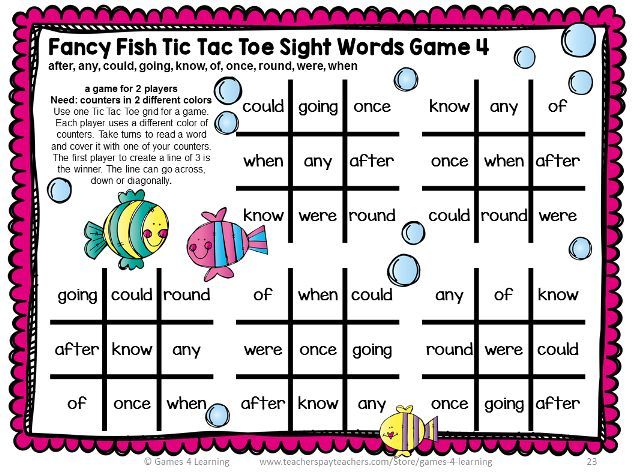 Originally developed to help learners with dyslexia, it takes a unique whole-word approach and teaches spelling together with typing.
Originally developed to help learners with dyslexia, it takes a unique whole-word approach and teaches spelling together with typing.
Learning spelling as an adult vs. as a child
Because English spelling is so irregular, children learn spelling at school. Some even compete in spelling bees, which are competitions that cover some of the hardest to spell words in the English language.
However, for adults it is assumed that they already learned the spelling of most words at school. Thus when it comes to people working in specialized fields, there isn’t always the same level of attention to subject and domain specific vocabulary, which may prove problematic.
Again, that’s where Touch-type Read and Spell can help. You can create your own modules that contain the relevant vocabulary you need to practice.
Moreover, most children learn how to spell at the same time as they learn new words.
This means their spelling skills develop along with their vocabulary.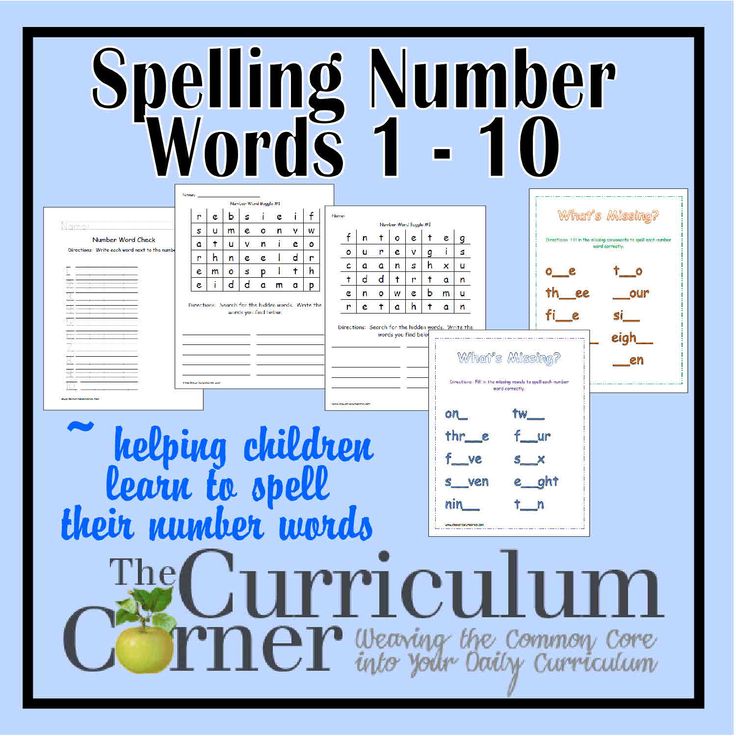 On the other hand, an adult with poor spelling skills may have a wide knowledge of spoken language but experience difficulty when it comes to writing down all of the words he or she knows.
On the other hand, an adult with poor spelling skills may have a wide knowledge of spoken language but experience difficulty when it comes to writing down all of the words he or she knows.
An adult who is learning English as a second language can have trouble with English spelling due to the lack of 1:1 sound letter correspondence. In other words, there are many ways of writing the same sound in English.
Spelling is even further complicated if the adult learner’s native language does not have a specific letter, or if it uses a different alphabet.
Reading and spelling skills are related, as spelling is part of the sound-letter mapping children need to decode words.
But while children learn at school, adults may need to be taught how to learn spelling. This can involve mastering memory tricks or understanding that repetition and multi-sensory learning can improve retention.
Specific learning difficulties
Fear of being exposed for bad spelling, reading or writing habits can keep many adults from improving their skills.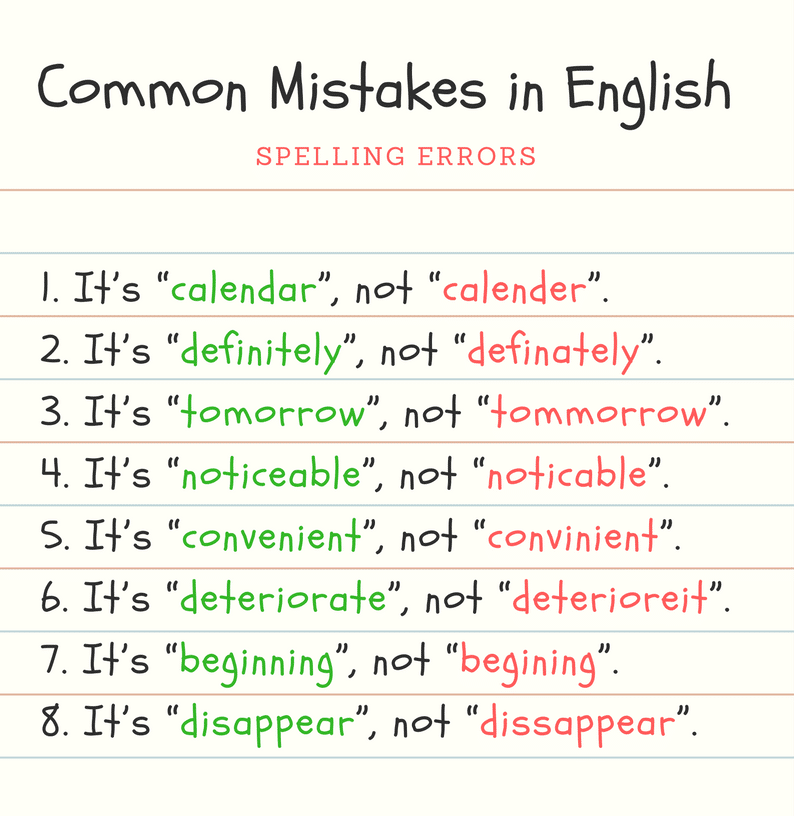 But sometimes an adult’s struggles with spelling are the result of an undiagnosed learning difficulty that caused them to miss out on crucial early literacy skills or to leave school due to frustration with reading and writing in the classroom.
But sometimes an adult’s struggles with spelling are the result of an undiagnosed learning difficulty that caused them to miss out on crucial early literacy skills or to leave school due to frustration with reading and writing in the classroom.
These individuals can highly benefit from addressing their specific learning difficulty and learning strategies that will help them overcome literacy roadblocks and improve spelling, no matter what their age.
DyslexiaDyslexia can manifest in different ways, but it's common for it to cause spelling difficulties rooted in a lack of phonological awareness. Luckily, there are strategies that can help dyslexic adults learn how to spell.
DyspraxiaAs opposed to dyslexia, dyspraxia is more related to planning and fine motor skills interruption. However, it can cause problems when it comes to writing words out by hand. Without ample practice writing, an individual may develop poor spelling skills.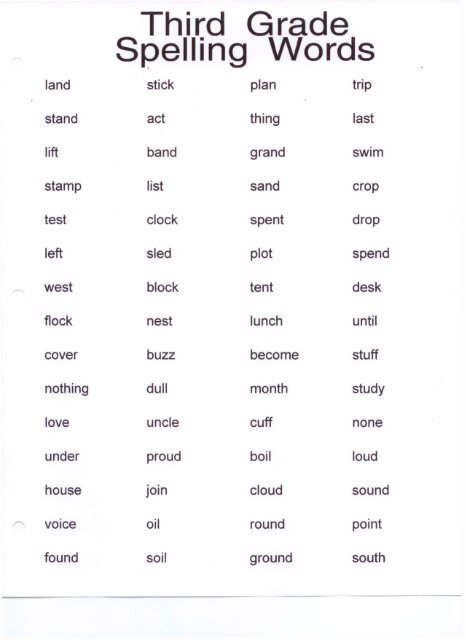 That’s why learning how to type is an excellent solution for dyspraxic individuals who are looking to improve their skills.
That’s why learning how to type is an excellent solution for dyspraxic individuals who are looking to improve their skills.
Handwriting difficulties may be a result of dysgraphia, a condition that makes it difficult and sometimes even painful to write by hand. An individual who has avoided writing for most of his or her life is likely to have underdeveloped spelling skills.
ADHDIndividuals with attention difficulties may find it difficult to focus and can have trouble sitting still. This makes it hard to concentrate during writing activities, particularly when it comes to learning spelling rules. Tactile learning via touch-typing can be a solution in these cases.
Spelling tips
- Know the rules. They aren’t consistent and there are plenty of exceptions, but it’s still worth learning some spelling rules in English. When you learn a rule, be sure to review a set of common examples that demonstrate it, as well as words that break the rule.
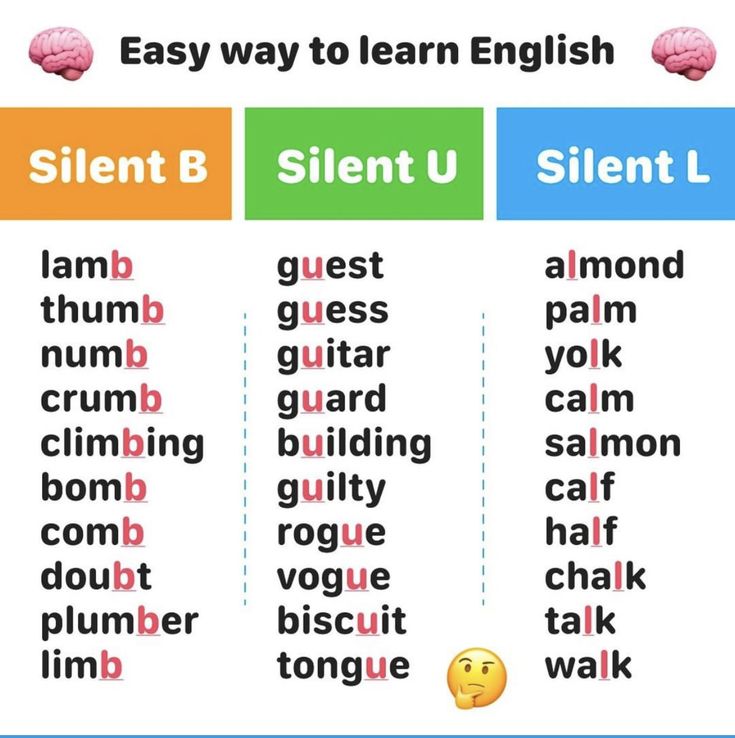 You may decide to pick up a page of English text and underline all of the words that conform to the rule. When you’re done, look for the exceptions, as you are sure to find a few!
You may decide to pick up a page of English text and underline all of the words that conform to the rule. When you’re done, look for the exceptions, as you are sure to find a few!
- Study Dolch Words. Also called Sight Words, these are among the most frequent words in English and account for up to 50% of most texts. They include prepositions, verbs, adjectives, articles and adverbs and overlearning them will allow you to spend more time learning the spelling of harder, less frequent vocabulary.
- Recognize prefixes and suffixes. When one or two letters appear at the start of a word and change the meaning in a consistent way, it is called a prefix. For example, re- means to do something again, such as review, regenerate, reiterate. A suffix added to the end of a word functions in a similar way. For example, we use –s or –es to make a noun plural. English is full of common suffixes and prefixes that you can learn.
 Familiarizing yourself with them will help you to see the various parts of a word and improve your spelling.
Familiarizing yourself with them will help you to see the various parts of a word and improve your spelling.
- Read as often as you can. Every language has common combinations of consonants and vowels. The more you read, the more you will be exposed to them and the more familiar they will become. It’s easier to learn the spelling of a word that you already recognize.
- Look for patterns. The human brain is very good at spotting patterns. If you present it with examples of words that contain a similar letter combination, you can learn English spelling rules indirectly. Try taking a highlighter and underlining words with the same or similar spelling across a newspaper page. Next, see if you can write out a rule that describes what you see. Acquiring rules in this way makes them easier to remember, thanks to the extra cognitive energy you expend figuring them out on your own.
- Use mnemonics. Hard to spell words can sometimes lend themselves to visual or auditory cues that create a more robust memory.
 For example, the word Wednesday can be tricky to spell because the d is silent. To help you spell it correctly, you might picture a bride and think that she is to be wed on Wednesday.
For example, the word Wednesday can be tricky to spell because the d is silent. To help you spell it correctly, you might picture a bride and think that she is to be wed on Wednesday.
- Spell out loud. Sometimes spelling a word aloud can make it easier for people with learning difficulties who struggle to put letters down on paper. Create a list of words that you want to learn and practice spelling them while you are in the shower or on your way to work. Speaking them and hearing yourself say each letter will create auditory memories that are especially helpful for individuals who are not visual learners.
- Research the origin of words. English is a Germanic language but it has adopted vocabulary from various other languages that it came into contact with over the years. For example, it contains plenty of words of French origin thanks to the Normans having ruled England for a few hundred years.
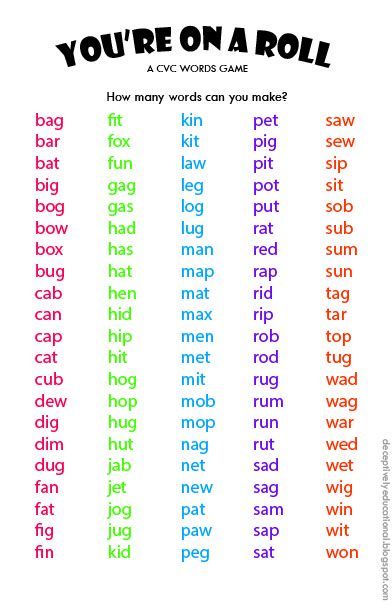 When you research where a word comes from, you may see similar spelling patterns for other words with the same origin, such as Greek words, which tend to be found in science related vocabulary.
When you research where a word comes from, you may see similar spelling patterns for other words with the same origin, such as Greek words, which tend to be found in science related vocabulary.
- Take a multi-sensory approach. When you learn the spelling of a word and encode it physically, as is the case in handwriting or touch-typing, you are adding muscle memory to the process. The more you generate a word, the more likely it is that you automatize its spelling.
Touch-typing and spelling
A touch-typing course is often a great idea for adults who want to improve their skills. That’s because typing entails repeatedly producing words on a keyboard while seeing and hearing them read aloud. This process encodes spelling patterns in a multi-sensory way and enhances recognition of common letter combinations.
Learn more
Plus, touch-typing is a skill that opens up job and academic opportunities and can be mastered in as little as a few weeks.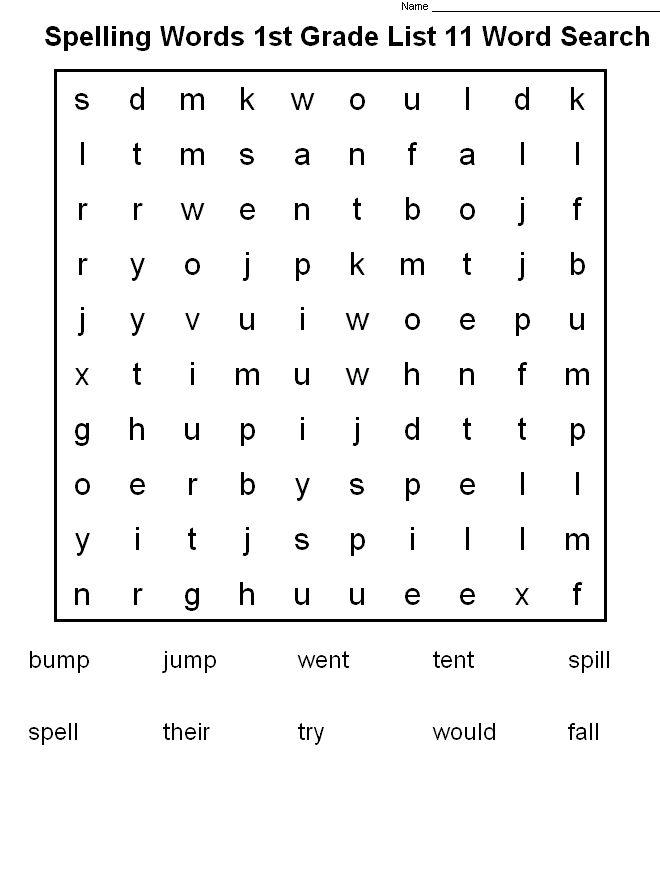 When the course is modular, such as is the case with the Touch-type Read and Spell program, it’s also convenient for a busy adult who is juggling work and family life and needs to move through the material at his or her own pace. The best part is it's a way of improving spelling skills without calling attention to ability, as the focus is on typing.
When the course is modular, such as is the case with the Touch-type Read and Spell program, it’s also convenient for a busy adult who is juggling work and family life and needs to move through the material at his or her own pace. The best part is it's a way of improving spelling skills without calling attention to ability, as the focus is on typing.
Do you have any tips for adults who are learning how to spell? Join the discussion in the comments!
For adult learners
TTRS is a program designed to get adults with learning difficulties touch-typing, with additional support for reading and spelling.
Magic spells for sorcery. Magic words for fulfilling desires - use them every day
Everyone wants to get into a fairy-tale land at least once, and especially children. To be real wizards and plunge into the world of magic, fairies and fabulous animals that can take you to a wonderful world. But there’s just no way to get there, for this you need to know special magic spells with which all childhood dreams can come true.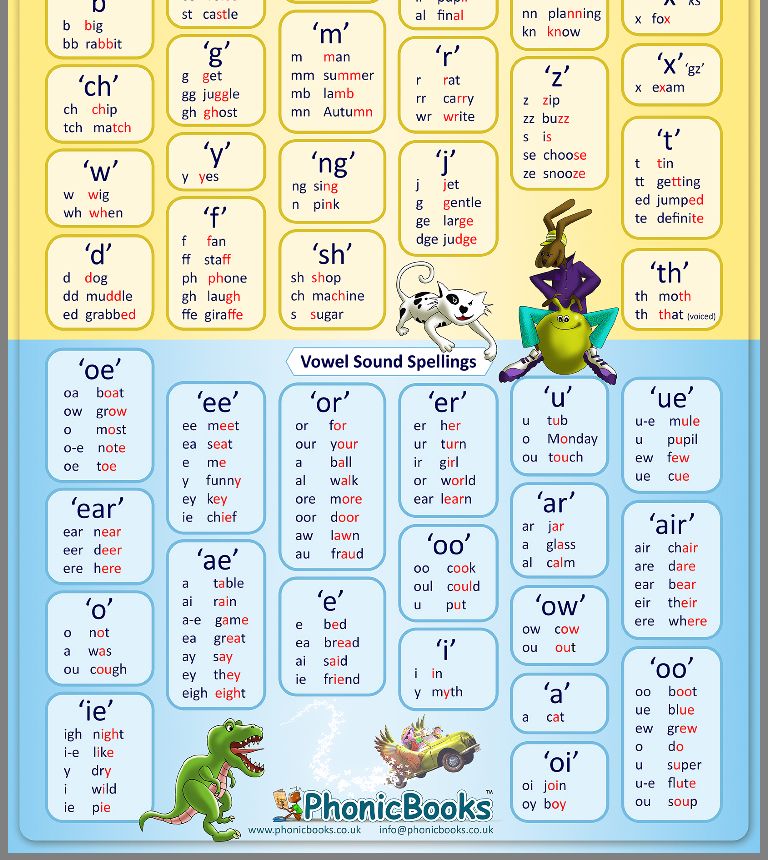
Going to a wonderful island
Every child dreams of being at least once on a fabulous and mysterious island, which will be surrounded on all sides by the blue endless ocean. In this spell, everything is very simple, for the children it will be necessary to make several magic wands with which they will begin to practice magic.
- Take a stick in your right hand and wave it from left to right, while saying the following words: ;If you stand on your feet together and simultaneously, stomp, jump high and not fall. And wave a magic wand, you can get into the country of a desert island. And there are crocodiles, hippos and fabulous fruit trees.
- Repeat text 2 more times. With the help of magic, children will quickly be transported to an invisible fairy-tale world where they can swim with dolphins, a talking zebra, a lion, a giraffe, a hippopotamus and a couple of too smart penguins will live with them.
- Magic wands are used again to return from the magical island.
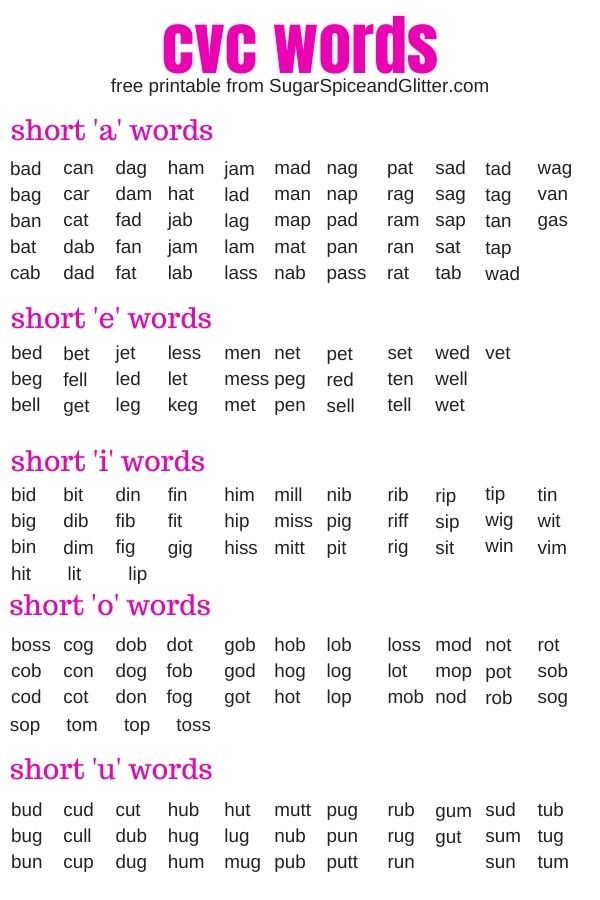 You need to take them in your left hand, wave them from right to left, while saying the following words: If you clap your hands together and stamp your feet in the same way, then you will immediately fly home from the island.
You need to take them in your left hand, wave them from right to left, while saying the following words: If you clap your hands together and stamp your feet in the same way, then you will immediately fly home from the island.
Here's a little trip you can take with a simple childish spell. The main thing is the power of imagination.
Magical place
Every adult in childhood had his own secluded place. For the most part, it was fictional. Children hid in closets and imagined that they were in a completely different place, where it was quiet, calm and incredibly beautiful. They covered themselves with a blanket and imagined that they had moved to another dimension. Any child can achieve the same with a little spell, which he must learn by heart, otherwise it will not work. You will also need to build a small tent in the apartment from a blanket, chairs.
The words to be learned are:
;I will take a magic wand in my hands and take magic with me. A miracle will fly to me and take us back to the old days, and wave a magic wand, and very quickly, together with you, a miracle, I will fly away.
A miracle will fly to me and take us back to the old days, and wave a magic wand, and very quickly, together with you, a miracle, I will fly away.
Many people think that such rituals are not real, but for children this is real magic, with the help of which all their dreams drawn from fairy tales come true.
Let's go to space and to the moon
Pronounce these words:
;You will go to the world of fabulous, kind and colorful alone. Just wave your wand and go to the moon.
In order not to get stuck on the moon, but to be able to return back to Earth, the second spell must be cast after the first one:
;The light is bright and big, you are so beautiful, but I have to go back. Bye, white hill!
In this article:
Real witch spells have great power and can have different directions. Some of them allow you to solve heart problems, others attract good luck and financial well-being, others establish powerful protection against negative energy.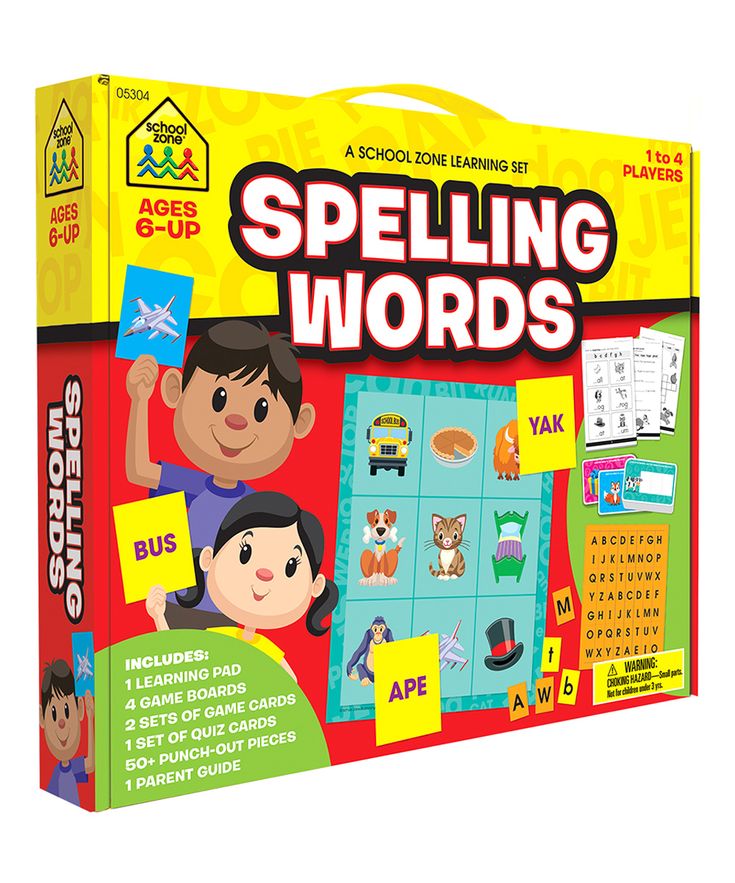
A huge number of spells for every taste have been collected on the Internet, but how can one find a truly effective spell among all this information? In fact, it is not so difficult, but for this you need to figure out which conspiracies can be called real. After all, not so much depends on the words themselves, any spell that the performer believes in can work. In other words, the real conspiracy is the one in the effectiveness of which you yourself believe.
How to recognize real magic spells
There are a huge number of sources from which a modern magician can draw information of interest to him. Effective spells can be found in specialized books, on the Internet, learned from grandmothers and mothers. Another question is, will each of them work in your case?
The first condition for an effective plot is that the performer must like it.
Choose only those spells that resonate with your soul, in the effectiveness of which you believe unconditionally. Because of this same condition, many professional sorcerers advise you to make conspiracies on your own so that these words literally come from your heart.
Rules for Casting Spells
Many beginners are afraid to make magical conspiracies on their own, because they are afraid to do something wrong, they are afraid to make a mistake. At
actually making your own spell is not that hard. The performer must follow a few basic rules, and he will definitely be able to make a strong and effective conspiracy.
Basic rules:
- The text of the spell must necessarily reflect its purpose. If you need to bewitch a man, then feel free to talk about it directly during the ritual.
- In the text, you will need to indicate the exact time frame in which your spell should begin to act.
- There must be no mention in any single spell that you want to harm someone. It will be even better if the conspiracy specifically notes that you do not aim to harm others.
In no case do not make spells aimed at causing severe harm to the health and life of another person, you do not need to send damage to illness and loneliness. Black magic is not the most suitable section for beginners. Always remember that the harm done to a person will definitely return to you, which is why even experienced magicians rarely take up this area of witchcraft.
- Contrary to popular belief, an effective spell does not have to be rhymed at all. Conspiracies in the form of prose show no less positive results. Therefore, if you are bad with versification, you do not need to torture yourself and the text.
Spells Safe for Humans
Today, there is no consensus on whether there are perfectly safe spells for the caster. People far from witchcraft, but close to the church, say that any manifestation of magic is a sin, and therefore you will have to pay for its accomplishment in the future.
Some professional magicians are convinced that the white area of witchcraft is completely safe for a person, therefore such conspiracies can be used without any fear for one's fate. But the opinion of most experienced sorcerers disagrees with the above views on this issue. They believe that any magic is dangerous for a person, however, a competently acting performer can protect himself from any negative consequences.
Magic is an integral part of the surrounding world
The last opinion seems to be the most authoritative, since many respected esotericists speak out in support of it. Indeed, even white magic in inexperienced hands can lead to various consequences, including negative ones. And if you build a powerful defense, then even black magic will not be so destructive for the performer.
Opponents of magic also say that all the difficulties and trials sent to a person come from the will of the Lord, and therefore trying to change something in one's destiny is an act of disobedience to higher powers, and the punishment for such actions can be much worse than any life complexities.
Actually, this is not entirely true. You can argue for a long time about where the source of our problems is, but even if they come from God, will a mortal be so guilty before the Almighty if he uses magic? After all, everything in this world was created by the Creator, and even Jesus Christ healed the sick with the help of the same white magic, which the churchmen call a miracle and in no way refer to witchcraft.
Real Magic Plots
As mentioned above, any spells that a person believes in can be called real, because it is from faith and spiritual forces that magic and the ability to influence the world around us are born. As an example, below are several proven rituals and conspiracies, different in direction.
To attract a guy
This is an effective conspiracy that will help you attract the attention of a guy you like. This spell cannot be classified as a love spell, since it does not deprive a person of his will, but only makes him look at you. The subsequent development of relations will depend only on people, and magic here will have absolutely no effect.
“May my, servants of God (name), dream come true. May my beloved, the servant of God (name), be near forever. And half a year will not pass, as he will find love for me in his heart. To be next to me every moment, nothing can cool his heart. May my words come true, but do not harm anyone.
Let it be so. Amen. Amen. Amen".
Strong spell to attract finance
“Let the money in the house of the servant of God (name) soon be born, let them be fertile day and night, let their source never grind, let the profit go to the joy of all residents. And a year will not pass, as everything will come true. Amen. Amen. Amen".
Slimming Conspiracy
Undress in the evening, stand near the mirror and read the words:
“And a year will not pass before I, the servant of God (name), become slender. No more unnecessary food, fatty food, will enter my mouth. Let the fat go from the sides, let everything superfluous melt, let the stomach disappear. My will is strong, my word is accurate, everything will come true, as I said. Amen. Amen. Amen".
Conspiracy to protect against enemies
09:06 pm - Spells from childhood“With the forces of earth, fire, water and air, with the power of all four elements, I conjure, the servant of God (name).
Let the air stand between me and my enemies, let it swallow the minds of vulgar enemies. Let the ground open under the enemies, if they look at me unkindly. Let the earth swallow them up, for an evil word. If they touch me, they will burn alive in the fire. Let them quickly forget about me, they do no harm. Let it be so. Amen. Amen. Amen".
CHILDHOOD SPELLS...
Do you remember? Many even repeated them while playing in the yard) And someone did not pay attention... but in vain)
Fly, fly, petal,
Through the west to the east,
Through the north, through the south,
Come back, making a circle.
As soon as you touch the ground -
To be in my opinion led.
Tell me to be at home with bagels!
(From the children's fairy tale "Flower-Semitsvetik", a series of books "School Library for Non-Russian Schools",
M.: "Children's Literature", 1975.)
Snip-snap-snurre, purre-baselurre!
Andersen has this expression (only in Danish and only in two fairy tales - in "The Snow Queen", as the Little Robber says in the finale, and in "Flax", in Russian translations snip-snap is missing, or rather replaced in both cases on "this is the end of the fairy tale"), this expression opens the "Snow Queen" by Schwartz, and this suggests that the playwright read the fairy tale in Danish. But do any of you know where the expression "snip-snap-snurre-purre-baselurre" originally came from? It is known that, it seems, in England and in our time under Catherine, there was such a card game "snip-snap-snurre", in fact, it is still found in textbooks of card games, although with pronunciation options. But what does the expression itself mean and where does it come from?
Cribly, crabble, booms
(From the fairy tale "The Snow Queen" by Evgeniy Shvarts, 1938)
Spell of the storyteller from the fairy tale play "The Snow Queen" (1938), written by the Soviet playwright Yevgeny Lvovich Shvarts (1896-1958) based on the fairy tale Hans Christian Andersen (1805-1875) The Snow Queen. There is no such spell in the work of the Danish writer. Phrase-symbol of a miracle, magic, magical transformation (jokingly).
Conjure my shoes! Evil winds blow-blow!!! …
(The Evil Witch Gingema in The Wizard of Oz)
Tear, break, smash! Overturn houses, lift into the air! Susaka, masaka, lama, rema, gem! . . Burido, furido, sema, pema, fema!
(Evil sorceress Gingema in the book "The Wizard of the Emerald City")
Bambara, chufara, loriki, yoriki, pickup truck, trikapu, skoriki, moriki! Appear before me, flying monkeys.
(Evil sorceress Bastinda, "Wizard of the Emerald City")
Mutabor
(From Wilhelm Hauff's fairy tale "Khalif-Stork")
To turn into a stork, Khalifa gently uttered these words.
"... you hold in your hands a great secret: if you sniff the black powder from this box and pronounce the sacred word: "Mutabor" - you can turn into any forest animal, any bird of the sky, any fish of the sea and you will understand the language of all living beings on earth, sky and water. When you wish to take the form of a man again, bow three times to the east and again say the sacred word: "Mutabor". But woe to him who, having taken the form of a bird or beast, laughs. The cherished word will forever disappear from his memory…"
Assara-d'Ara-chUkkara
(The film-tale is called "The Seventh Genie")
Abra-shvAbra-kadAbra
(film "The Adventures of Baron Munchausen") Baba and 40 thieves")
Sesame spices. Sesame or sesame (English sesame goes back to Arabic simsim). The same sim who opened the entrance to the treasure cave to Ali Baba and 40 robbers.
Versions of the interpretation associated with this plant, the most famous expression "open sesame", are very interesting. According to one of them, the use of the word “sesame” as a secret one suggested that because of its fame, it simply would not be remembered, which is what happens in the fairy tale with Kasym. According to another version, such a password is associated with the peculiarity of sesame pods to crack and burst, revealing hidden seeds. The difficulty of harvesting sesame seeds is also connected with this - the pods are harvested slightly unripe so that the seeds do not fall out.
Crex-fex-pex
(From the fairy tale "Pinocchio")
If someone has forgotten where this quote comes from, let us remind you. Pinocchio, succumbing to persuasion in a place known as the Country of Fools, buried his only gold one in the hope that the next day a tree would grow there and instead of leaves it would have golden gold pieces. He buried gold and repeated like a spell: krex, pex, fex.
At the command of the pike, at my will…
(Russian folk tale "At the command of the pike")
Fuck-tibidoh-tibidoh!
(In the 16th issue of the cartoon "Just you wait!")
The wolf, who has lost consciousness due to sunstroke, falls into the hands of a bottle from which smoke comes out and a Bearded Hare appears, dressed in a turban, a dressing gown and characteristic shoes. To the surprised exclamation of the Wolf "Hare ?!" he replies: “Hare, Hare! Abdurrahman ibn Hottab!” The Wolf threateningly says to the Hare: "Well, Hare" ... He pulls out the hairs from his beard and utters the spell "Fuck-tibidoh-tibidoh!", As a result of which the Wolf decreases in size and falls into the same bottle. The bottle is caught by an old man who dreams of catching a goldfish. Seeing the Wolf appearing from the bottle, the old man is taken aback, but he, having pulled out a hair from the old man's beard, utters the spell "Fuck-tibidokh-tibidokh!", and a palace appears on the site of the dilapidated hut. At the very end of the film, the old man again catches the Wolf and asks him to change the old woman for a pretty blonde princess. He pulls out a hair from the old man, utters a spell, but the result was somewhat unexpected: a dilapidated hut reappeared on the site of the palace, and in front of it, of course, a broken trough.
Sivka-burka, prophetic kaurka, stand before me like a leaf before grass!
("Sivka-Burka" - Russian folk tale)
Eni Beni Raba
(film "Top-down", 1981)
Cartoon about an imp who did NOT know how to do dirty tricks. The spell "Eni Beni Raba" is pronounced when you need to do a little dirty trick.
You roll, roll, little ring,
On the spring porch,
In the summer porch,
In the autumn house
Yes, along the winter carpet
To the New Year's fire!
(From the fairy tale by Marshak S.Ya. "Twelve months", 1956)
Hut-hut, turn your front to me, back to the forest!
(film-fairy tale "Morozko" 1964)
Snur-re, snur-re, snur-re, vips! Turn around baby!
(The Tale "Little Nils Carlson" by Astrid Lindgren)
Abes Khabes Karto Fla-bes
(From the film "The Enchanted Boy")
"Abes -" in the name of the fathers", Khabes - "I bring into action", Karto as it is Written, "Flya-devil -" and according to my prayer I will cook. "(This is a joke). With these words, the dwarf (who has a pointed hat on his head, in which in England in the 13th century AD Jews were ordered to walk!) bewitched Niels
Thrips, traps, trulli, eight holes, five pots!
(Children's story "Secrets of the Old City", based on the fairy tale by Dagmar Normet "Backfiller and his friends") of course, you will make friends with Zasypayka. But it’s not so easy to get to know him - when he is wearing a magic hat, the children do not see him, and when he takes off the hat, the children immediately fall asleep. And so Zasypayka was very sad and dreamed of making friends with someone. And he made friends - with the boy Mati and his dog Tups.
Grandma, magic grandfather, gray bear!
(From childhood)
It was necessary to repeat the phrase 3 times. This was a saying, and then they called the action that must be performed, a request or desire. Sometimes it worked when the parents could hear. And it was also necessary to make passes with your hands while casting the spell. For mystery and for everything to work.
There is a lot in the world around us that cannot be explained from the point of view of traditional science. In particular, such phenomena include magic. You can argue for a long time about whether this all really exists or is just a figment of a person’s imagination, but the fact remains that the inexplicable happens. At the same time, such phenomena can be controlled. This will help you spells for beginners.
Starting to use them, remember that any action triggers a chain of consequences, so consider whether it is worth interfering with the current order of things. Spells for beginners are not a toy.
What is needed in order to master the magical art?
What are real spells for beginners? How do they work? It is often written that imagination and self-confidence are enough to master magic. There is no need to make an effort at all, this is magic and miracles. Like, this is the magic for beginners. Spells, however, will not work on their own. Yes, and imagination is enough only for simple fantasizing. It is impossible to influence reality with its help. The component that is often forgotten is practice and iron willpower, the willingness to go to the limit, and if necessary, go beyond it. But in any case, you need to start with something simple and not requiring huge energy costs.
These are the spells for beginners. Let's consider some of them below.
Wiccan spells for beginners for peace and tranquility - it's simple and clear
This ritual belongs to the Wiccan tradition and is used by witches in order to bring peace to the family. To perform the action, you will need:
- candle;
- rose petals;
- incense;
- water basin.
Light a candle. Ideally, if it is pink or white. Say: "There is peace around."
Then burn incense such as cinnamon or vanilla and say, "Harmony is in the air." Throw rose petals into the water with the words: "Peace on Earth. " Imagine the incense scent and soft pink light enveloping the planet. Pour it all into water or onto the ground and close the ritual with the words: "So be it." Spells for beginner witches in the Wiccan tradition are aimed precisely at learning to control both yourself and energy.
If you're new to the path of magic, it's best to use spells with a clear structure. They should contain a ritual part and lock words, for example: “so be it”, “ordered” and the like. By doing this, you sort of seal the ritual and increase the chance that the magic will work correctly. First, it is better to study white magic spells for beginners.
As a practice, you can try the following plot, which is aimed at winning the favor of a person. It's not a spell and it's not a ploy. By the way, if you have a negative attitude towards Slavic paganism, it is better not to use this spell at all, since the effect will be the opposite.
“As Yarilo loves all living things, as a mother pities her child, so it would be (a) I would not be ashamed (a), but sweet (a) (name of the person of interest). Let it be so". Say the spell 3 times, clearly keeping the image of the right person in your head. The conspiracy helps in communicating with quarrelsome people, with superiors or teachers.
Magic for girls, and not only
The "Spells for beginners" section also includes "Removing boredom from yourself." It is ideal for girls, because it allows you to stop worrying about unhappy love and also has both verbal and ritual parts. You will need:
- a river or just a faucet with running water;
- a glass of boiled water.
Light a candle and say the following words either on the water pouring from the tap or on the river: “As water flows without grieving about its banks, so I (name) would not grieve, would not yearn for (name) - now and forever, and forever and ever. Amen". Next, say the text on a glass of water and drink it. No matter how hard it is, this spell will help you stabilize your psycho-physiological state. The ritual can only fail if this person is your destiny, if you are connected with him, which will have to be unleashed in this incarnation. By the way, men can also use this spell.
Healing
What other white magic spells are there for beginners? Of course, conspiracies of treatment. They are best used only in extreme cases, since healing comes at the expense of your personal power. This means that the outflow of forces will continue until the person becomes healthy. In turn, this is dangerous by overworking and depleting the personal reserve. The body's defenses are weakening, and there is a great chance that you will take on the patient's illness. Relatively harmless healing spells include a conspiracy to stop the blood. It has practically no ritual part. If a person cuts himself, imagine that you have a needle of light in your hand and begin to sew up the wound with it, imagining how the blood stops. To enhance the effect, say or whisper: "Blood is not water, so stop pouring." All spells for beginners have a similar structure. Words are most often spoken in a half-whisper and in rhyme.
What not to do?
Beginners are not recommended to experiment with the so-called black magic, when forces from the Lower World are invoked to carry out the plan. This is not always the devil, etc., but nevertheless, such experiments will not bring anything good. In addition, there is a great danger of not coping with what you will cause, and yourself becoming dependent on the dark forces.
Protect yourself!
Be that as it may, protection spells for beginners should be known in any case and used as far as possible. In order not to remember complex texts for a long time, in a crisis situation it is enough to say through clenched teeth: “Behind me is a fiery river, ahead of me is the road is easy. Around me - iron tyn. Teeth, tongue, lock.
Or you can use another defensive spell. It is more difficult, but also more effective. At midnight, say: “I will go out, crossing myself, and be blessed beyond the threshold, from the doors to the doors from I will go to Alatyr-stone. Grandfather sits on that stone, dressed in a hundred iron shirts. Give me, grandfather, your shirt for protection, protect me from the demon and the demoness, the sorcerer and the sorceress, from the dashing, crooked, oblique. Let it be so. Amen". Now you can go to bed with peace of mind.
Black Magic
If you still feel a craving for darkness or you had strong sorcerers in your family, you can take a chance and try out a simple ritual in order to take revenge on the offender. For all its ease, it is very effective, since it is based precisely on the concentration of the will on one single goal. The very essence of the ritual is fasting. Every time you feel like eating something, ditch the treat in favor of water, bread, or an apple. It is necessary to fast in this way for 2 weeks, starting from the new moon. The end of the fast should coincide with the 16th lunar day - the astronomical full moon. On this night, draw a circle around you, once again refuse food and, leaving the circle and sipping water, say "Damn you, (name) of the offender."
It is better to present the rules of behavior to a child in a playful way, so that it is clearer and more accessible. To do this, you can use riddles and games about polite words presented below.
Riddles
It's not too lazy to tell friends,
Smiling…
(Good afternoon)
goodbye to each other
We'll say...
(Goodbye)
Don't blame each other,
Better Hurry…
(Sorry)
How beautiful it is
Good word…
(Thank you)
When guilty, say you are in a hurry
Please, please-
(Sorry)
Never get involved in someone else's conversation,
And adults you are better ...
(Don't interrupt)
Even an ice block will melt
From the word warm...
(Thank you)
The old stump will turn green,
When he hears...
(Good afternoon)
If you can't eat anymore,
Let's tell mom we ...
(Thank you)
Polite and affectionate boy
Talks when meeting…
(hello)
When we are scolded for pranks,
We're talking…
(Excuse me please)
Both France and Denmark
Saying goodbye. ..
(Goodbye)
If a friend meets a friend,
Friends shake hands with each other,
In response to a greeting
Everyone says ...
(Hi)
Letter to mother wrote
I answered yesterday,
And at the end transmitted
To all friends ...
(Hi)
If with a friend or girlfriend
The separation was long,
When we meet, we say:
"How old and..."
(how many winters)
If met someone,
According to the laws of etiquette,
So that the conversation goes uphill,
Asking: “How…”
(Case)
***
Don’t be rude to older people
And don’t be familiar,
When you meet them, say
Not “hello”, but…
(Hello)
***
Our world is tired of evil,
So that it becomes kinder,
We are not too lazy to speak
At the meeting . ..
(Good afternoon)
Masha knew a lot of words,
But one of them is missing,
And it's like a sin,
Spoken most often.
This word follows
For a gift, for dinner,
This word is spoken,
If you are thanked.
(Thank you)
Children Dasha and Yegorka
Pizza cheese grated.
Asking for mice from the hole:
“Give it! Be…”
(So kind)
***
Puppy Phil was walking in the yard,
Suddenly I met an old bulldog.
Please guess as soon as possible:
Who should be the first to say hello?
(Puppy Phil, because he is younger, and the younger ones are the first to greet the elders)
Here comes the lap dog Zhulka,
Fashionista, imaginary…
And towards - gentleman,
Cute Scottish Terrier.
Guess it or not:
Who will say "hello" first?
(Scotch Terrier, because he is a man, and a man is the first to greet women he knows)
And below are funny riddles about polite words by Olesya Emelyanova.
Games
1. "Learn the magic words"
Tell your child what polite words mean, that people in different countries greet each other in different ways, and that all languages have such magic words.
Learn magic words that are close in meaning - "Hello" and "Good afternoon", "Goodbye" and "See you soon", etc.
Or you can learn polite words in different languages of the world. For example, the word "Hello" or "Hello."
Hello is the most popular and useful word for a traveler. Yes, and the simplest, so it will not be superfluous to know how to say hello in different languages of the world. It is interesting to note that not always a greeting from another language is literally translated into Russian as “hello”, often it will mean “good afternoon” or “hello”, and sometimes even “peace be with you”.
| Language | What it sounds like |
| Azerbaijani | salam alaikum |
| English | Hello, Hi |
| Arabic (Egypt) | Ahlan wa sahlan |
| Arabic (East, North Africa) | Marhaba |
| Afrikaans | Hola |
| Belarusian | Prywitanne |
| Bulgarian | hello |
| Hungarian | Jo Napot |
| Vietnamese | Chao |
| Hawaiian | Aloha |
| Dutch | hallo |
| Greek | Geia sou |
| Georgian | Gamarjoba |
| Hebrew | shalom |
| Indonesian | Selamat |
| Icelandic | Godan daginn |
| Spanish | Buenas dias |
| Italian | Buon giorno |
| Latin | Ave |
| Latvian | Lab dien, sveiki |
| Lithuanian | Sveikas |
| German | Guten Tag |
| Norwegian | goddag |
| Polish | Dzien dobry |
| Portuguese | Ola |
| Romanian | Buna |
| Serbian | Hello |
| Slovak | Dobry den |
| Thai | Sawatdi |
| Turkish | Merhaba |
| Uzbek | salam alaikum |
| Ukrainian | hello |
| Finnish | Paivaa |
| French | Bonjour |
| Hindi | Namaste |
| Croatian | Zdravo |
| Czech | Dobry den |
| Swedish | God dag |
| Esperanto | Saluton |
| Estonian | Tervist |
| Japanese | Konnichi-wa |
2.
This game is best played with several children. You need to ask the children to complete the task, but you need to complete it only when you call the “magic word”. Below are examples of commands, you can use them, or you can come up with your own.
Get up, please!
Raise your hands!
Please clap your hands!
Stomp.
Jump, please.
Please, hands forward.
Put your hands down, please.
Please tilt your head forward.
Tilt back, please.
Left.
Right.
Please, sit down in your seats.
3. "Polite - impolite"
Rules of the game. If you read about a polite act - the children clap their hands 2 times. When you read about an impolite act, the children stomp their feet 2 times. You can also come up with other fun moves.
Examples of deeds:
Say hello when meeting
Push and not apologize
Whistle, shout, make noise at school
Give way to elders
Do not get up when the teacher asks
Help climb the stairs
Say goodbye when leaving
4.
This is a warm-up game that can be played with one or more children. Children represent the clock. The two hands are the hands that walk around the circle of an imaginary clock face.
Lead : Tiki-tock, tiki-tock -
The clock runs like this.
The clock struck seven in the morning,
All the kids were woken up.
Children clap their hands seven times, imitating the striking of the clock: bom-bom.
Leader: Morning has come,
The sun has risen...
Answer guys,
What should I say when I wake up?
Children: Good morning!
The game continues. The arrows are moving again; The clock is ticking and it is now twelve o'clock in the afternoon.
Leader: So the day has come, guys;
What should I say at the meeting?
Children: Good afternoon!
The game continues in the same way.
Leader: Arrows ticked-walked
And six in the evening struck.
Children clap their hands six times.
Leader: Evening has come, guys.
What should I say at the meeting?
Children: Good evening.
Leader: Well done!
5. Polite tram
This game is best played by a large group. Because it involves the driver, conductor and passengers. Children line up one after another as a train, depicting tram passengers. The driver is standing in front, in his hands he has a toy steering wheel. The conductor pays passengers by issuing tickets not for money, but for polite words (thank you, please, be kind, sorry, hello, etc.). In this case, the same word should not be repeated twice.
Tickets can be made from paper, old postcards or calendars.
If one of the passengers finds it difficult to say a polite word, one of the fellow passengers can buy a ticket for him. But at the same time, knowledge of the magic polite words is necessary.
If no one can rescue a stowaway, the conductor sends him to the driver. The advantage of the driver is that he can call any polite words, even those that have already sounded. When all passengers are paid, the polite tram departs.
mean and how to translate
Alohomora! Expelliarmus! And even the forbidden Crucio... All Potter fans know these spells by heart. They were easily used by both Harry and his friends and his mortal enemy, Voldemort. As we read, we learned more and more cruel and sophisticated magic formulas that could both protect and harm.
And few people thought about the meaning of these complex words. Meanwhile, JK Rowling gave each spell a special meaning. She not only invented a set of letters, but turned to the most ancient language - Latin. It was Latin, and sometimes English, that became the basis for most of the spells.
Let's fast forward to the spell room and find out what these words really mean!
1 Alohomora
According to JK Rowling during a court hearing in 2008, she borrowed this word from the West African Sikidi sign system used in geomancy (this is divination with the help of earth or stones).
The word literally translates to "benevolent to thieves," and is perfect for a spell that unlocks a magically sealed door.
2 Riddikulus
Anyone remember when this phrase is used? Yes, it helps with the appearance of a boggart, turns fear into something funny, and then "explodes" it. Actually, the word "ridiculus" in Latin means "ridiculous" or "absurd"!
3 Crucio
This spell is one of the three Unforgivables that causes unbearable pain to the opponent.
Again, for its name, Rowling revived the Latin and used the word "crucio" for the "cruciatus" spell, which in translation means the verb "torment, torture, torture." Almost verbatim description of the action!
4 Accio / Accio
All Potter fans remember how the words "Accio, the broom" saved Harry in the first trial of the Triwizard Tournament. Then he summoned his broom and outwitted the dangerous dragon.
Rowling again turned to Latin for this spell and used the word "accio", which translates as "call" or "summon".
5 Avada Kedavra
JK Rowling first spoke about the meaning of the most terrible spell at the Edinburgh Book Festival in 2004. She explained that for the killing spell, she used an analogy with the ancient magic word "Abracadabra". Which in Aramaic meant "let the thing be destroyed."
Rowling explained that it was originally used to treat illness, and "thing" meant illness. She played with meaning and created her own, killing spell, where instead of "thing" it meant the one to whom the spell was directed.
6 Imperio
The third of the Unforgivable Spells robs a person of his own will and can force him to do anything.
And again Rowling suggested Latin - in translation from this language "impero" means "command", "order". There is also an analogue in English - "imperious" - "imperious".
7 Sonorus / Sonorus
Wizards make their voices louder with this spell, so that it is a kind of microphone of the wizarding world. Only in Potterian is it enough to put a wand to the throat, and the sound of the voice will become louder. By the way, the translation of the spell "sonorus" from Latin is "loud", "sonorous".
8 Reducto / Reducto
Wizards use this phrase to smash an object or make a small amount of destruction. Everything is simple here - it comes from the Latin word "reduce", which in some meanings can be used as "eliminate".
9 Confundo / Confundo
Makes the opponent confused, confusing. Obviously, the origin of the word "confundo" can be explained in two ways at once.
One of them is the English version, "I'm confused", meaning "I'm confused". It can also come from the Latin word "confundere", which also means "distort", "confuse".
10 Expecto Patronum / Expecto Patronum
Everyone remembers how often Harry used it. The Expecto Patronum can drive off Azkaban's guardians, the Dementors, who then defected to the Dark Lord's side. More than once, this spell has saved the lives of Harry and his friends.
To implement it, Rowling used a combination of two words in Latin - "Patronus" ("protector", "father", "patron") and "expecto" ("wait", "expect"). It turns out "I expect a defender." In this case, the play on words in the case of Harry is interesting, because his patronus looked like the incarnation of his father - a deer.
11 Expelliarmus / Expelliarmus
This spell was Harry Potter's calling card. It does no harm, but only knocks out of the hands of the enemy what he is holding (most often, this is a magic wand). The author made it from two words in Latin - "expellere" - "to drive out" and "arma" - "weapon".
12 Legilimens / Legilimens
Helps to penetrate the mind of another person, and was especially loved by Professor Snape. Not surprisingly, Rowling compiled it almost verbatim. The word "legilimency" most likely comes from the Latin words "legere" (read) and "mens" (mind).
13 Levicorpus
This spell was introduced to the Potter fans in the Pensieve when James Potter played a trick on Severus Snape. It causes the victim to rise into the air and dangle from side to side.
Perhaps the spell comes from two Latin words "levare" - "raise" and "corpus", as everyone has already guessed - "case", "body".

